
Felix Werder
Felix Werder was born in Berlin in 1922, where his family was part of Arnold Schoenberg's musical circle. His family fled Germany in 1935 (his father was a cantor and liturgical composer at a leading Berlin synagogue).
Ending up in Australia five years later, he was interned for four years as a political prisoner from 1940. Many of his fellow internees were musicians, and he produced a large number of his early compositions for them to play - Werder wrote fragments of the scores of Handel and Mozart from memory, later progressing to his own imitations of seventeenth and eighteenth century music. The music of the synagogue was a major influence, manifesting itself in his use of the Hebraic modes (in early works), and in the melismatic treatment of speech rhythms.
Werder's early twelve-tone music gave way to a more improvisatory, collage-like style that often made virtuosic demands on its performers. From 1956, Werder was active as adult education class lecturer on music, and, from 1960 to 1977, as music critic for the Melbourne daily newspaper The Age, before moving to radio, where he developed a series on contemporary music for the ABC together with Keith Humble.
He wrote for a wide variety of musical media, including chamber music, orchestral and music theatre works, and received numerous commissions from organisations such as Deutsche Oper (1967), the ABC (1969), the Australian Opera (1969), the National Theatre (1975), the Victorian State Opera (1976), and the Berlin Festival (1987).
A significant figure in Australia's musical avant-garde, Werder went on composing into his old age. According to a composer colleague, Warren Burt, Werder had been refining his technique and 'getting closer to what one might term "pure music", a product of intense reflection and personal expression'.
A provocateur until the end of his life, Werder finished his own AMC biography by stating: '...a thing of beauty is a bore forever', and 'music is not as soporific for calming neurosis of a decadent bourgeois society'. Felix Werder died in Melbourne, at the age of 90, on 3 May 2012.
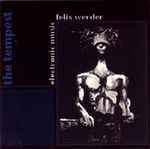
The Tempest (Electronic Music)
Felix Werder
2007
Pogus Productions
CD, Comp

Australian Composers
Austral String Quartet, Larry Sitsky, Felix Werder
1975
Music by Felix Werder Volume 2
Felix Werder
1974
Mopoke
LP

Banker - A Music-Theatre
Felix Werder
1973
Discovery (6)
LP
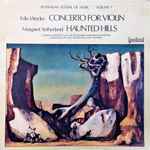
Concerto For Violin / Haunted Hills
Felix Werder / Margaret Sutherland
1972
Festival Records, Festival Records
LP
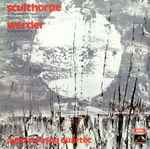
Australian Music For String Quartet
Felix Werder, Peter Sculthorpe, Austral String Quartet
1971
His Master's Voice
LP, Album
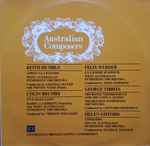
Australian Composers
Keith Humble, Colin Brumby, Felix Werder, George Tibbits, Helen Gifford
1970
Australian Broadcasting Commission
LP, Album
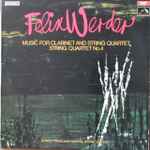
Music For Clarinet And String Quartet • String Quartet No.4
Felix Werder / Donald Westlake, Austral String Quartet
1969
His Master's Voice
LP

Music For Clarinet, Horn And String Trio / String Quartet No. 1
Felix Werder / Harold Badger - Paul McDermott String Quartet / Thomas White (13) / Roy White (3)
1963
W & G
LP, Album
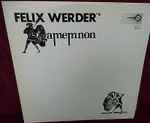
Agamemnon
Felix Werder
Studio M (9)
LP, Album
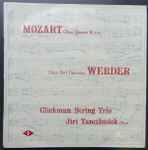
Oboe Quartet; Three Part Fantasias
Wolfgang Amadeus Mozart, Felix Werder - Glickman String Trio, Jiri Tancibudek
W & G
LP, Album, Mono
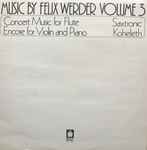
Music by Felix Werder Volume 3
Felix Werder
Mopoke
LP
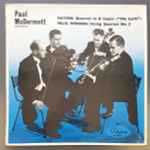
Quartets
Paul McDermott String Quartet, Joseph Haydn, Felix Werder
Viking
LP, Mono

A Piano Odyssey
Trevor Barnard
2008
Diversions (3)
CD, Album
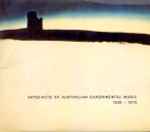
Artefacts Of Australian Experimental Music 1930 - 1973
Various
2007
Shame File Music
CD, Album, Comp, Dig
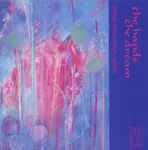
The Hands The Dreams
Daniel Herscovitch
1992
Tall Poppies
CD, Album

Australia Felix In Concert 1979
Australia Felix
1979
Mopoke
LP
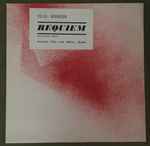
Requiem
Australia Felix With Merlyn Quaife
1979
Not On Label
LP, Ltd
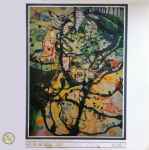
Australian Music Today - Volume II
Various
1965
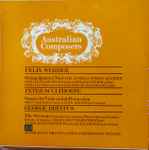
Australian Composers • Felix Werder, Peter Sculthorpe, George Dreyfus
Various
Australian Broadcasting Commission
LP, Comp, Mono
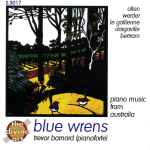
Blue Wrens
Trevor Barnard
2001
Divine Art
CD, Album

Reverberations One + Two
Douglas Lawrence
2000
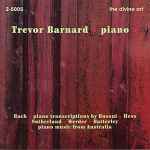
Bach Transcriptions And Australian Piano Music
Trevor Barnard
1997
Divine Art
CD, Album

Machine Messages
Various
1992
Australian Computer Music Association, Inc.
CD, Comp
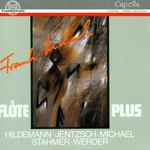
Flöte Plus
Various
1992
Thorofon, Thorofon Capella, Thorofon Classics
CD
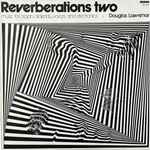
Reverberations Two - Music For Organ, Didjeridu, Voices, And Electronics
Douglas Lawrence
1979
Move
LP
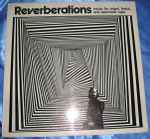
Reverberations - Music For Organ, Brass, And Electronic Tape
Douglas Lawrence
1973
Oscussion (excerpt)
Felix Werder
Oscussion
Felix Werder
Banker
Felix Werder
The Tempest
Felix Werder
V/Line
Felix Werder
Ocussion (Excerpt 1971)
Felix Werder
Oscussion (excerpt) (1971)
Felix Werder
Monograph: I. —
Felix Werder
Monograph: II. —
Felix Werder
Monograph: III. —
Felix Werder
Violoncello Solo
Felix Werder
Violoncello Solo (1993)
Felix Werder
3 Pieces after Blake's Songs of Innocence and Experience: No. 2. Spring
Felix Werder
Oscussion (excerpt - 1971)
Felix Werder
Monograph -----
Felix Werder
Oscussion (1971)
Felix Werder
String Quartet No. 8
Felix Werder
monograph: iii —
Felix Werder
Three Night Pieces, Nr. 2, op. 121
Felix Werder
Three Night Pieces, Nr. 1, op. 121
Felix Werder

